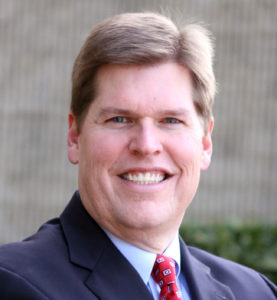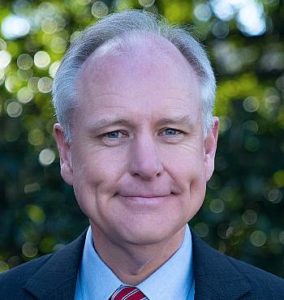The next phase of implementing its Toward Bold Faithfulness initiative will lead the Cooperative Baptist Fellowship to reimagine its relationships with partner organizations, members of the CBF Governing Board were told Jan. 29.
Meeting via Zoom due to the ongoing coronavirus pandemic, the board heard a series of updates from the Toward Bold Faithfulness implementation team, led by Kyle Reese and Paul Baxley.
Over the past 18 months, “we have listened, and we have listened and then we have listened again,” Reese said. “It is our prayer that we have heard the voice of the Spirit.”
“We have listened, and we have listened and then we have listened again.”
The partnership question, Baxley added, relates to figuring out “who in CBF (life) is supposed to do what.”
One of the findings, he explained, is that state and regional organizations affiliated with CBF “discovered they were best suited to carry out ministries to local congregations” and that CBF global excels with large convening opportunities such as global missions, large events and serving as a platform for sharing ideas and resources.

Susan Crumpler
Susan Crumpler, who serves as co-coordinator of North Central Region CBF, said the group believes it is “critical” to help “advance the health and vitality of CBF congregations. That has been crucial in the ongoing conversation among state and regional leadership, as the lens through which we are evaluating possible changes in our collaborative approach.”
While state and regional organizations have closer proximity to local congregations, not all state and regional organizations have the same ability to serve the needs of churches equally, she explained. “We need to reevaluate structures and collaborative approaches so we can bring up all the states and regions to have a similarly excellent impact on the health and vitality of congregations.”

Larry Hovis
This initiative will be well-received by state and regional leaders, said Larry Hovis, coordinator of CBF North Carolina. “I am encouraged that this process gives us a framework for living into our desire for collaboration and cooperation.”
Likewise, Amanda Tyler, executive director of BJC, noted partnerships have been important to CBF’s culture from the very beginning. “As we look to the future, after a lot of deep listening, knowing that partner organizations are eager for deeper partnership …. we are focusing on the urgent needs of congregations and communities.”
One outcome of the new initiative is that conversations between CBF global and partner organizations will begin earlier, she explained. And another outcome is that current partners will be asked to suggest other potential partners to come to the table, thereby expanding the conversation.
Hovis said the new collaborative approach — which is still in development — will “recognize that one size does not fit all” and will “honor the Baptist principle of autonomy.”
Four areas of initial focus with partners will be the current financial strain for congregations, navigating change, vision and identity, and ministerial transitions, he reported.
Throughout the meeting, participants noted that just one year earlier they had gathered in-person in Decatur, Ga., for the winter meeting of the Governing Board — not realizing that would be the last time they would meet in person for at least a year due to COVID-19.

Paul Baxley
“It’s been quite a year,” said CBF Executive Coordinator Paul Baxley. “We have mourned the deaths of more than 2 million people all over the globe, including more than 400,000 citizens of the United States.”
Yet “even as the world has changed around us,” the clarity of focus brought by Toward Bold Faithfulness has remained and intensified, he added.
Adaptation and innovation has been especially true for CBF Global Missions, said Steven Porter and Sam Harrell, CBF’s top missions leaders.
“It has been a remarkable year of innovation and adaptation,” Porter said. “Our field personnel have navigated a complex map” and yet most have been able to stay in place despite the pandemic.
“Only a single handful of field personnel when given the opportunity to come back to the States decided to take us up on that,” he explained. “Almost everyone has remained in context.”
CBF has dealt with 60 field personnel serving in 19 countries individually to assess needs and solutions, Harrell added. “During the last quarter, our member care system has logged almost 500 direct touches with field personnel.”
One upside to the pandemic-shaped world is that field personnel have connected more deeply with supporting congregations stateside through Zoom and other digital platforms, Harrell added.
Yet nearly a year in, it is “very evident that the strain is beginning to show” with field personnel, he said. One example of that is the varied likelihood of accessing a vaccine depending on where you live. “It looks like sub-Saharan Africa will not begin to be covered until 2023.”
He offered one request for Governing Board members: “Keep our folks in your prayers as they attempt to do the best they can in difficult circumstances.”
Related articles:
CBF launches season of listening and response to rally support, chart future course
CBF Governing Board adopts strategic plan along with budget reduction for 2021


